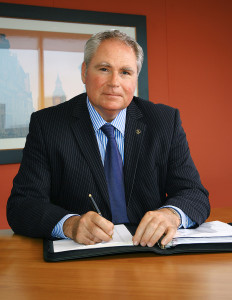
From: The Society of Will Writers
A discretionary trust is a type of trust where the trustees are given complete discretion to pay or apply the income or capital of the assets for the benefit of one or all of the beneficiaries. They have control over how much to distribute at any given time, when to make distributions and who to make them to. No particular beneficiary has an interest in the trust or an entitlement to the trust funds – they only have a potential interest until the trustees actually exercise their discretion in their favour.
As the trustees have complete discretion over the trust funds, it is advisable for the testator to write a letter of wishes accompanying the Will which provides some guidance to the trustees in how they would like the assets to be distributed. It is important to note that letters of wishes are not a legally binding document and therefore there is no obligation placed on the trustees to follow them.
The aim of this type of trust is to provide flexibility. This could mean that trustees have the flexibility to adapt the money paid to beneficiaries in accordance with their changing needs etc.
What are the benefits of this type of trust?
- Protects a beneficiary’s share where they are financially unstable
- Tax saving reasons
- Protecting the benefits of a vulnerable beneficiary
- Safeguarding money from a beneficiary who is currently going through or likely to go through a divorce.
Taking each point above in turn, some beneficiaries may not be trusted to manage large inheritances and the testator may be worried that it will all be spent at once. The benefit of using a discretionary trust here is that the trustees will manage the fund, giving money to the beneficiary as and when they will require it and can essentially drip feed funds. Let us not forget the trustees do have complete discretion, so if a beneficiary with spending habits wants to purchase a top of the range sports car, the trustees are well within their remit to refuse this request.
Holding funds in the trust will also protect the money from the beneficiary’s creditors or potential bankruptcy. It is also useful where the beneficiary has a drink, drug or gambling problem and the testator does not want to gift the monies to them directly for fear it could exacerbate their addiction.
A discretionary trust can be used to ensure agricultural property relief or business property relief is used.
A discretionary trust can also be used to preserve funds for a minor until they attain an age where they can manage the money for themselves, or to protect funds for beneficiaries beyond their age of majority – even if there are no concerns of addiction. Some beneficiaries may have already reached the IHT threshold and do not want the inheritance they are to receive to increase the size of their own estate. In this situation, the trustees could simply lend the money to the beneficiary.
These types of trusts are also commonly used by those looking to drip feed money to vulnerable beneficiaries to avoid them from losing any benefits they are entitled to.
Lastly, it can be used to safeguard money from a beneficiary that is going through a divorce. The benefit of entering their share of the estate in this trust is that the trust funds will not be treated as belonging to the beneficiary as the trust owns the assets and will therefore fall outside of the beneficiary’s estate.
It is important to remember that a discretionary trust requires a minimum of two beneficiaries due to the discretionary factor the trustees have. Beneficiaries can either be individuals or classes i.e. “my children.”
A discretionary trust can last for a maximum of 125 years; therefore, it is important to consider who the default beneficiaries will be i.e. those who will inherit the trust fund when the trust ends. The trust can end earlier in instances where all of the beneficiaries have died, or if the trustees have decided to wind down the trust and distribute the trust assets accordingly.
A discretionary trust is subject to the relevant property regime. Therefore, if the funds in the trust exceed the nil rate band, anniversary and exit charges will apply.
It is important to note that where a main residence passes to a discretionary trust, the RNRB will not apply. However, the RNRB could be recovered if the property is appointed out to direct descendants within 2 years of the testator’s date of death due to section 144 of the Inheritance Act 1984. However, this is likely to cause extra expense to the estate so we would advise the main residence is addressed separately in the Will.
Sussex Will Writers help to inform our clients and readers of the latest industry news and developments. If you have any questions about any of the information on our blog or website, Click to Call us on 01903 533681
or get in touch by emailing: info@sussexwillwriters.co.uk
 Sussex Will Writers
Sussex Will Writers
T: 01903 533681
M: 07734 744886
E: info@sussexwillwriters.co.uk
Could you do with some FREE, sound advice on:
- Writing a Will – What do I need and how much does it cost?
- Creating Lasting Powers of Attorney – If I was incapacitated who can act on my behalf?
- Property Protection Trusts – Can these really save Care Home Fees?
- Pre-Paid Funeral Plans – With so many to choose from how do I decide which plan is best?

There is so much confusion on these vital areas of estate planning, that sometimes just a chat with an expert in the field can clear up misunderstanding and set out the way ahead, without all the legal jargon.
Or complete the form below
Steve Worsfold
Affiliate Member of the Society of Will Writers
Advising on Wills/Trusts/Probate/Powers of Attorney

Mobile: 07734 744886
Office: 01903 533681
Email: steve@sussexwillwriters.co.uk
Website: www.sussexwillwriters.co.uk
Protecting What’s Precious to You,
Now and in the Future
Sussex Will Writers is proud to support Dementia Friends,
an initiative of The Alzheimers Society
Our business is certified ‘Safe to do business with’ and ‘Code compliant’
by the UK’s largest regulatory body for Will Writers, The Society of Will Writers.
Steve Worsfold has been an Affiliate Member of the Society for 15 years.




